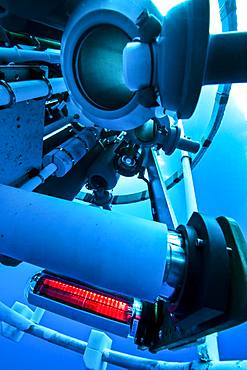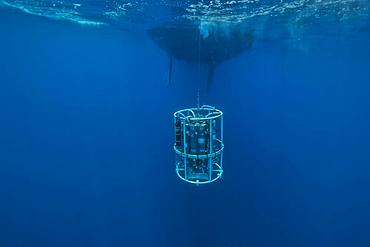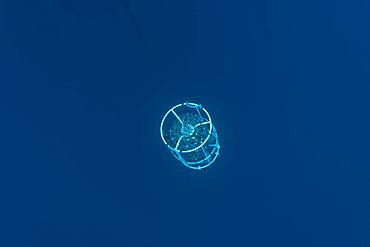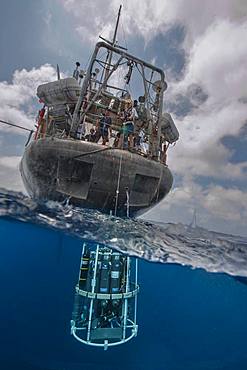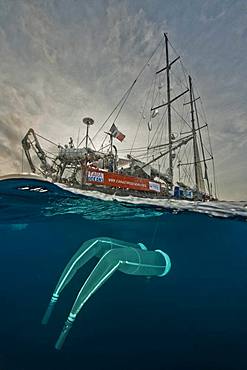Recent searches
Loading...
860-287453 - Tara Oceans Expeditions - May 2011. CTD-Rosette (Conductivity Temperature Density instrumental platform with 7 additional sensors), Galapagos
860-287454 - Tara Oceans Expeditions - May 2011. CTD-Rosette (Conductivity Temperature Density instrumental platform with 7 additional sensors), galapagos
860-287459 - Tara Oceans Expeditions - May 2011. diving Marine Iguana (Amblyrhynchus cristatus); Isabela Island; Galapagos, Ecuador; The Marine Iguana appears slow and clumsy on land, but this particular species of lizard is the only sea-going lizard in the world. However, it has to return the the land to breed.
860-287451 - Tara Oceans Expeditions - May 2011. Surface plancton nets, deployed from Tara, Galapagos
860-287455 - Tara Oceans Expeditions - May 2011. CTD-Rosette (Conductivity Temperature Density instrumental platform with 7 additional sensors), Galapagos
860-287452 - Tara Oceans Expeditions - May 2011. CTD-Rosette (Conductivity Temperature Density instrumental platform with 7 additional sensors)
860-287456 - Tara Oceans Expeditions - May 2011. CTD-Rosette (Conductivity Temperature Density instrumental platform with 7 additional sensors), Galapagos
860-287457 - Tara Oceans Expeditions - May 2011. Bubbles rise from underwater volcanic vents among rocks, the openings are crusted with sulfur, Roca Redonda, Galapagos, Ecuador
860-287449 - Tara Oceans Expeditions - May 2011. Surface plancton nets, deployed from Tara, Galapagos
860-287450 - Tara Oceans Expeditions - May 2011. Tara with deployed plancton nets. On "station", the boat is drifting without engine or sails. Tara Oceans, a unique expedition: Tara Oceans is the very first attempt to make a global study of marine plankton, a form of sea life that includes organisms as small as viruses and bacterias, and as big as medusas. Our goal is to better understand planktonic ecosystems by exploring the countless species, learning about interactions among them and with their environment. Marine plankton is the only ecosystem that is almost continuous over the surface of the Earth. Studying plankton is like taking the pulse of our planet. Recently, scientists have discovered the great importance of plankton for the climate: populations of plankton are affected very rapidly by variations in climate. But in turn they can influence the climate by modifying the absorption of carbon. In a context of rapid physico-chemical changes, for example the acidification observed today in the world's oceans, it is urgent to understand and predict the evolution of these particular ecosystems. Finally, plankton is an astonishing way of going back in time ? a prime source of fossils. Over the eons, plankton has created several hundred meters of sediment on the ocean floors. This allows us to go back in time, to the first oceans on Earth, and better understand the history of our biosphere. More than 12 fields of research are involved in the project, which will bring together an international team of oceanographers, ecologists, biologists, geneticists, and physicists from prestigious laboratories headed by Eric Karsenti of the European Molecular Biology Laboratory. Galapagos
860-287458 - Tara Oceans Expeditions - May 2011. Galápagos sea lion (Zalophus wollebaeki), Roca Redonda, Galapagos, Ecuador
You reached the end of search results
